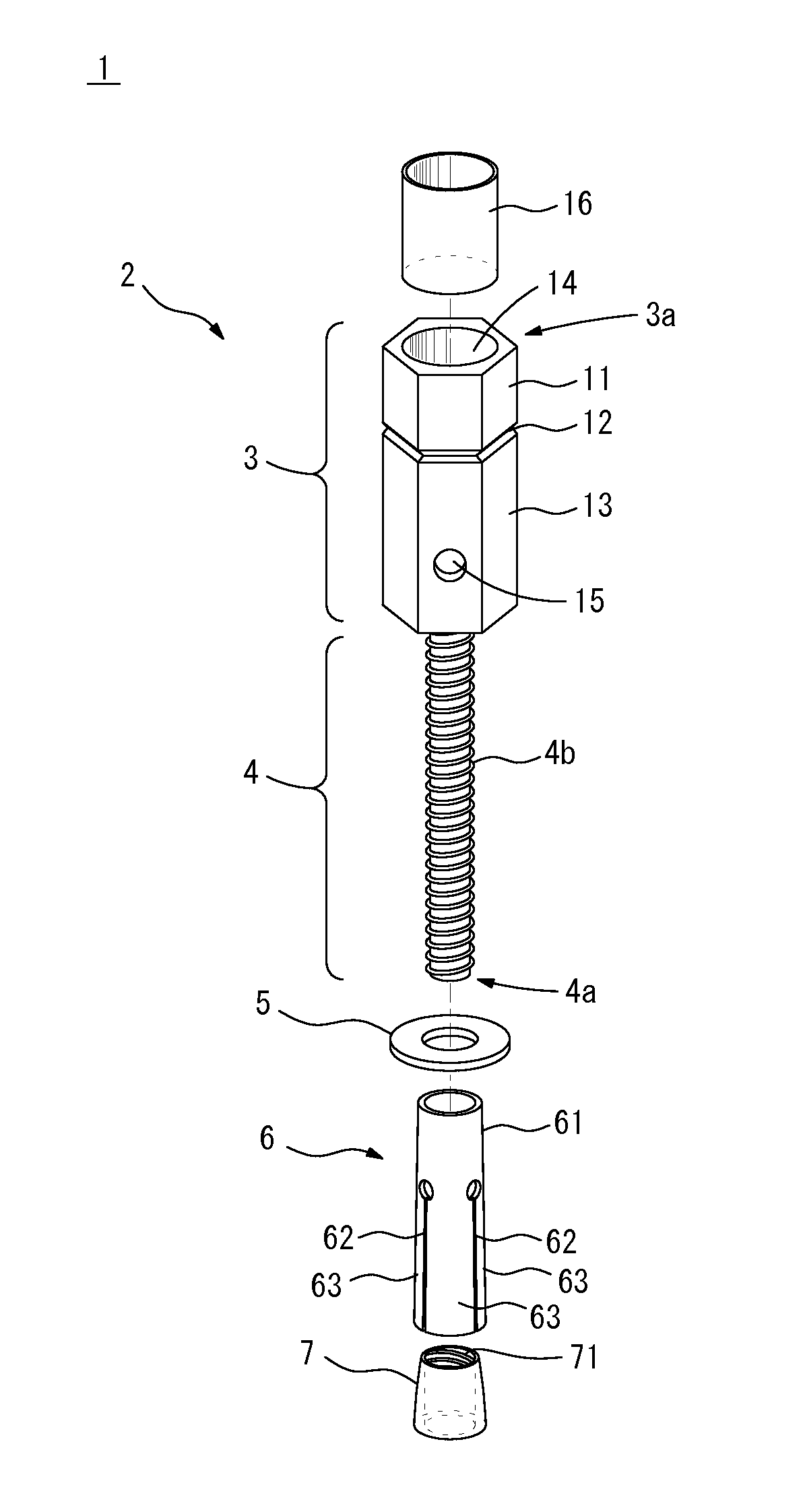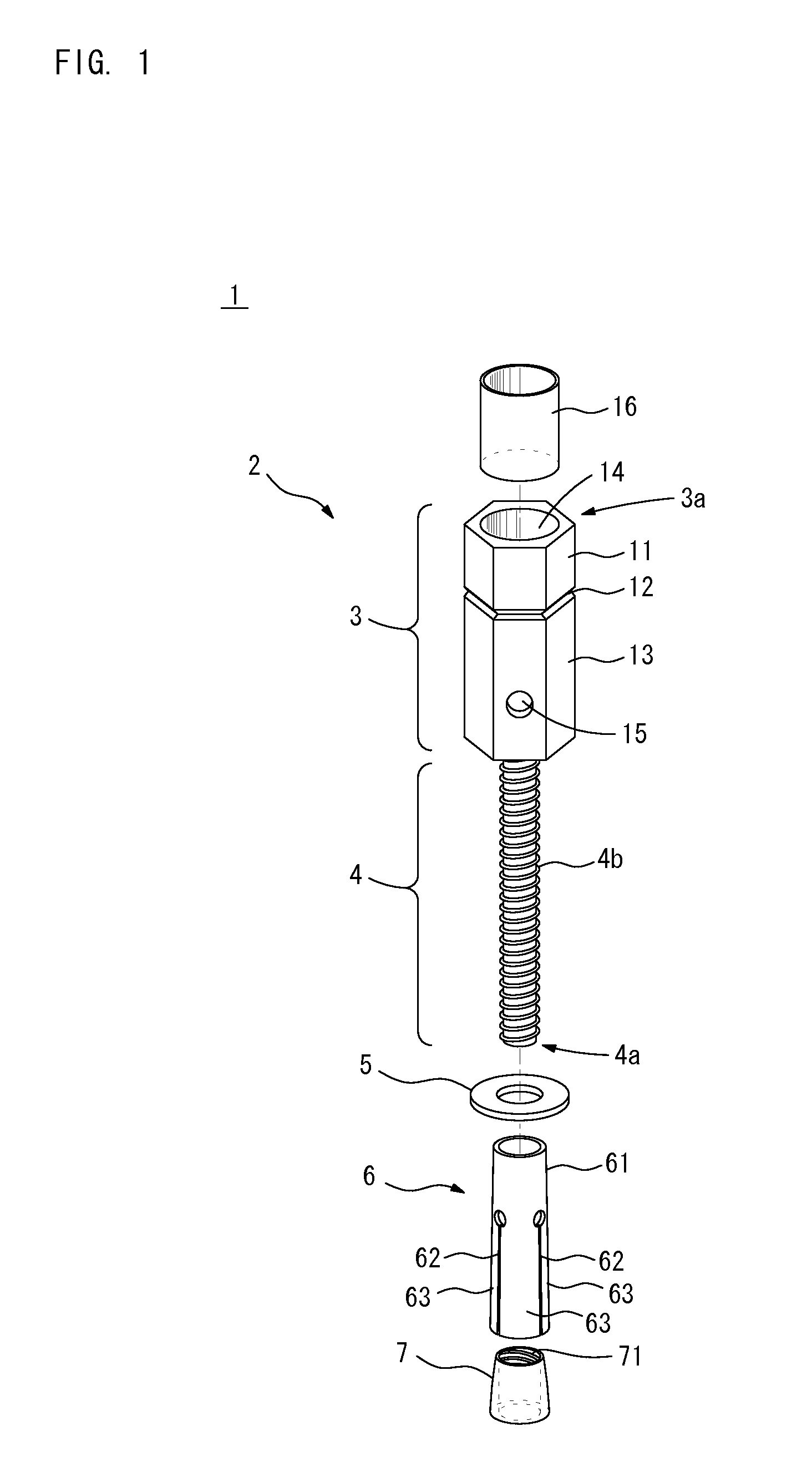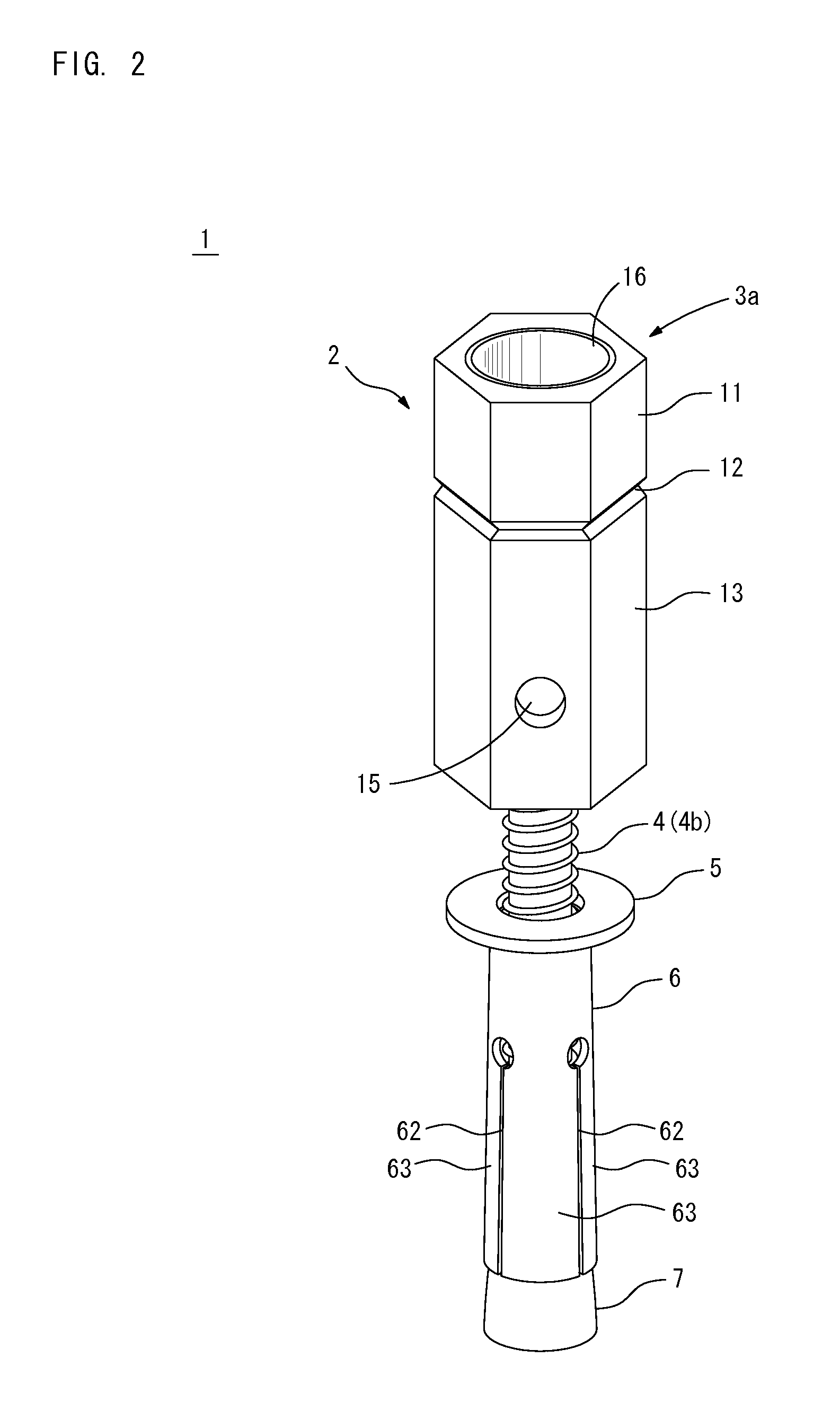Anchor bolt, anchor, connecting nut and clamping nut
a technology of connecting nut and clamping nut, which is applied in the direction of load-modifying fasteners, screws, fastening means, etc., can solve the problems of greater distance between the eyes of the worker and the anchor, the anchor disclosed in the patent literature 1 is not suitable for fixing to the ceiling structure, and the integration of the tip portion of the steel bar with the tip portion of the steel bar. the effect of the spreading sleeve and the ceiling structur
- Summary
- Abstract
- Description
- Claims
- Application Information
AI Technical Summary
Benefits of technology
Problems solved by technology
Method used
Image
Examples
first preferred embodiment
[0064]FIG. 1 is a perspective view of an anchor 1 of a first preferred embodiment of the present invention with all parts of the anchor 1 separated. FIG. 2 is a perspective view of the anchor 1 with all the parts of the anchor 1 assembled. FIG. 3 is a longitudinal sectional view of the anchor 1 with all the parts of the anchor 1 assembled.
[0065]The anchor 1 of the first preferred embodiment includes an anchor bolt 2, a washer 5, a spreading sleeve 6, a cone nut 7 and a cap member 16 as illustrated in FIG. 1. The anchor 1 is to be attached and fixed to various types of skeletons such as concrete buildings and structures, and is also suited for attachment to any of ceiling structures or surfaces of walls or floors.
[0066]The anchor bolt 2 includes a shaft part 4 of a predetermined length with a male screw thread 4b and a head part 3 connected to one end of the shaft part 4. The head part 3 and the shaft part 4 are, for example, formed integrally, and have the same axial center. The out...
second preferred embodiment
[0104]A second preferred embodiment of the present invention is described next. The tool is attached to the outer side surface of the tool attachment section 11 according to the first preferred embodiment as described above. In the second preferred embodiment, the tool is attached to the inner side surface of the tool attachment section 11. In the description given below, those elements which have already been described in the first preferred embodiment are represented by the same reference numerals, and these elements are not discussed repeatedly for the same description.
[0105]FIG. 15 is a perspective view of an anchor 1a of the second preferred embodiment with all the parts of the anchor 1a assembled. FIG. 16 is a longitudinal sectional view of the anchor 1a with all the parts of the anchor 1a assembled. The anchor 1a of the second preferred embodiment differs from the anchor 1 of the first preferred embodiment in that the head part 3 of the anchor bolt 2 has a different structure...
third preferred embodiment
[0112]A third preferred embodiment of the present invention is described next. The anchor bolt 2 is used as a part of the anchor 1 or the anchor 1a in the above-described first and second preferred embodiments. In the third preferred embodiment, a connecting nut 8 is used. In the description given below, those elements which have already been described in the first preferred embodiment are represented by the same reference numerals, and these elements are not discussed repeatedly for the same description.
[0113]FIG. 18 is a perspective view of an anchor 1b of the third preferred embodiment. FIG. 19 is a longitudinal sectional view of the anchor 1b with all the parts of the anchor assembled. As shown in FIG. 18, the anchor 1b of the third preferred embodiment includes the connecting nut 8, a shaft member 9, the washer 5, the spreading sleeve 6, the cone nut 7 and the cap member 16.
[0114]The shaft member 9 of a predetermined length in the axial direction has the outer side surface of a...
PUM
 Login to View More
Login to View More Abstract
Description
Claims
Application Information
 Login to View More
Login to View More - R&D
- Intellectual Property
- Life Sciences
- Materials
- Tech Scout
- Unparalleled Data Quality
- Higher Quality Content
- 60% Fewer Hallucinations
Browse by: Latest US Patents, China's latest patents, Technical Efficacy Thesaurus, Application Domain, Technology Topic, Popular Technical Reports.
© 2025 PatSnap. All rights reserved.Legal|Privacy policy|Modern Slavery Act Transparency Statement|Sitemap|About US| Contact US: help@patsnap.com



